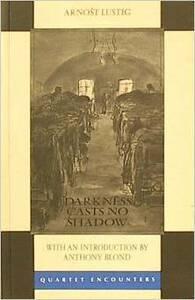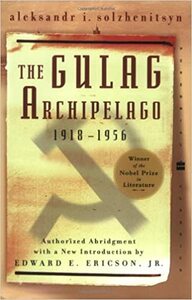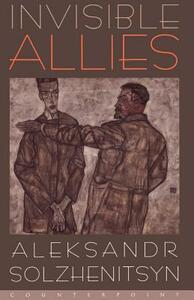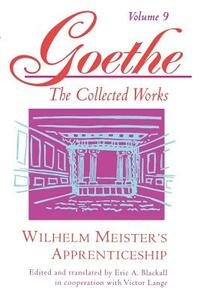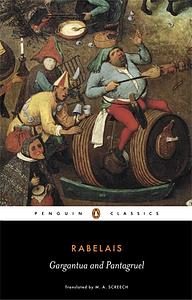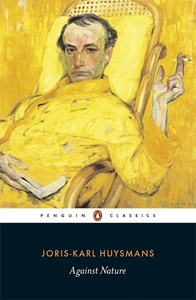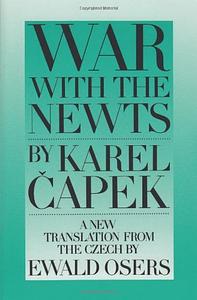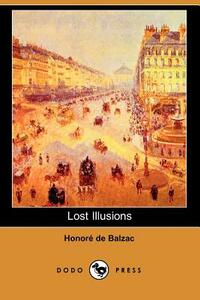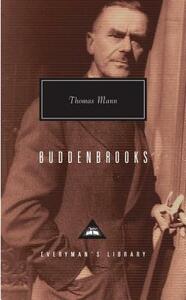You need to sign in or sign up before continuing.
Take a photo of a barcode or cover
screen_memory's Reviews (234)
After an extensive three-volume trip through the gulags and the unspeakable atrocities that occurred all throughout that accursed archipelago, I found it appropriate to continue onward into further unutterable crimes against humanity - deeper into misery, deeper into human suffering - this time within the grounds of the Theresienstadt concentration camp, in which Lustig himself was imprisoned (he was imprisoned as well in Auschwitz and Buchenwald).
Informed by his own experience of escaping from the train leading him to Dachau, this novel follows two presumably teenaged boys following their escape en route to another camp. The narrative shifts between the immediacy of their exhausting trek through German forests toward some indeterminate freedom, and Danny's memories of his experience in the camp they were being transported away from - the memory of his father crying when he and his mother were taken from him, the memory of seeing his mother for the last time after their separation as she stood in line for the gas chamber, the memory of their wounded friend they had no choice but to leave behind in their flight from the camp.
This story is a tragic one, and Lustig delves deep into the mind of the prisoner who is assured that darkness - of starvation, of evil, or of death - awaits them at the end of whatever course they might take, whether in the camps or whether in fleeing toward some refuge they know they will never find. There is no triumph of the human spirit in this novel, and there is no fortunate conclusion. Contrary to the title of Lustig's excellent but tragic story, darkness does indeed cast its boundless shadow over the expanse of the novel.
Informed by his own experience of escaping from the train leading him to Dachau, this novel follows two presumably teenaged boys following their escape en route to another camp. The narrative shifts between the immediacy of their exhausting trek through German forests toward some indeterminate freedom, and Danny's memories of his experience in the camp they were being transported away from - the memory of his father crying when he and his mother were taken from him, the memory of seeing his mother for the last time after their separation as she stood in line for the gas chamber, the memory of their wounded friend they had no choice but to leave behind in their flight from the camp.
This story is a tragic one, and Lustig delves deep into the mind of the prisoner who is assured that darkness - of starvation, of evil, or of death - awaits them at the end of whatever course they might take, whether in the camps or whether in fleeing toward some refuge they know they will never find. There is no triumph of the human spirit in this novel, and there is no fortunate conclusion. Contrary to the title of Lustig's excellent but tragic story, darkness does indeed cast its boundless shadow over the expanse of the novel.
I plowed through this first volume with a voraciousness I haven't felt since reading Hans Fallada's Every Man Dies Alone months ago. It's not often I read well beyond my daily reading goal, but I could not help but make an exception for this book.
Anyone who has ever read through this book or will come to will in all probability find it absolutely absurd why the horrors of Communism are not denounced as fervently as those that occurred in the holocaust (if the question has not already given you pause). There are so many passages that will compel you to chuckle to yourself because the sheer absurdity of the number of arrests, the unbelievably loose interpretation of the criminal code (which will make you wonder why they even bothered drafting a code at all), and the multitude of unfathomable tortures will make you wonder why people still to this day advocate for an ideology with a proven body count in the tens of millions (not even counting the fifteen to twenty million Russians who were imprisoned in the Gulags). This book explodes every apologist's defense you could probably imagine, and I cannot help but feel that any claim that seeks to discredit what's been written in Gulag is similar to holocaust revisionism.
Despite Solzhenitsyn's comprehensive knowledge of the testimony of some 276 prisoners (not counting all of the assistance in all sorts of ways - testimonial, academic, fact-checking or otherwise) and his own personal experiences, there survives an indomitable undercurrent of bitter, ironic humor (how could he - and we, the readers, ourselves - not also laugh at the sheer stupidity of the Stalin regime as it's documented?). Beyond that, Solzhenitsyn describes an emotional record of reactions one would not expect when thrown into such a dreary situation; a feeling of pleasure after being moved to another prison, smiling to all of his cell mates after realizing Stalin's Amnesty 1945 meant another extension of his and countless other prisoners' sentences....
Solzhenitsyn's spirit was so powerful and unconquerable that all of the millions who died in the Gulags - all of those murdered prisoners whose bodies polluted the sewers of the Soviet prison system - his constant surveillance after his release from the gulag, and the continuance of the Soviet Union decades after Stalin's death (and after Solzhenitsyn's exile) could not bring him down. This one man, this single "dangerous element," as Sartre called him, has done more than any other single individual to bring down the Soviet Union and expose the horrors that occur within a Communist regime which to all outward appearances seems a utopia.
However, there exists a terrible historical inequity: why are so many students in high school introduced to Elie Wiesel's Night and educated about what occurred in Germany's concentration camps, yet none of them are ever introduced to Solzhenitsyn, and, if anything (as so many others including myself did), gravitate toward Communist sympathies and go on to read not the Gulag Archipelago, but the damn Communist Manifesto.
In Germany, certain concentration camps remain standing as a testament to the atrocities that occurred there; atrocities that were apologized for by all of Germany. In Russia, statues of Stalin and Lenin are still celebrated (and Mao Zedong's face is still printed on China's currency).
Anyone who has ever read through this book or will come to will in all probability find it absolutely absurd why the horrors of Communism are not denounced as fervently as those that occurred in the holocaust (if the question has not already given you pause). There are so many passages that will compel you to chuckle to yourself because the sheer absurdity of the number of arrests, the unbelievably loose interpretation of the criminal code (which will make you wonder why they even bothered drafting a code at all), and the multitude of unfathomable tortures will make you wonder why people still to this day advocate for an ideology with a proven body count in the tens of millions (not even counting the fifteen to twenty million Russians who were imprisoned in the Gulags). This book explodes every apologist's defense you could probably imagine, and I cannot help but feel that any claim that seeks to discredit what's been written in Gulag is similar to holocaust revisionism.
Despite Solzhenitsyn's comprehensive knowledge of the testimony of some 276 prisoners (not counting all of the assistance in all sorts of ways - testimonial, academic, fact-checking or otherwise) and his own personal experiences, there survives an indomitable undercurrent of bitter, ironic humor (how could he - and we, the readers, ourselves - not also laugh at the sheer stupidity of the Stalin regime as it's documented?). Beyond that, Solzhenitsyn describes an emotional record of reactions one would not expect when thrown into such a dreary situation; a feeling of pleasure after being moved to another prison, smiling to all of his cell mates after realizing Stalin's Amnesty 1945 meant another extension of his and countless other prisoners' sentences....
Solzhenitsyn's spirit was so powerful and unconquerable that all of the millions who died in the Gulags - all of those murdered prisoners whose bodies polluted the sewers of the Soviet prison system - his constant surveillance after his release from the gulag, and the continuance of the Soviet Union decades after Stalin's death (and after Solzhenitsyn's exile) could not bring him down. This one man, this single "dangerous element," as Sartre called him, has done more than any other single individual to bring down the Soviet Union and expose the horrors that occur within a Communist regime which to all outward appearances seems a utopia.
However, there exists a terrible historical inequity: why are so many students in high school introduced to Elie Wiesel's Night and educated about what occurred in Germany's concentration camps, yet none of them are ever introduced to Solzhenitsyn, and, if anything (as so many others including myself did), gravitate toward Communist sympathies and go on to read not the Gulag Archipelago, but the damn Communist Manifesto.
In Germany, certain concentration camps remain standing as a testament to the atrocities that occurred there; atrocities that were apologized for by all of Germany. In Russia, statues of Stalin and Lenin are still celebrated (and Mao Zedong's face is still printed on China's currency).
I felt this book was an almost necessary introduction to the Gulag Archipelago (which I'm currently reading) because, since it's about Solzhenitsyn's allies who played their part in the preservation of his numerous texts from the KGB and their underground samizdat distribution (bootleg microfilm photographed versions), it really gives a sense of the operations and the triumph of the human will that occured not only on Solzhenitsyn's part but on all his allies' parts that was responsible in ultimately delivering and detonating the bomb that exploded the Soviet Union.
Apologies have been spared for the concentration camps, and so-called nazis these days are met with total intolerance if not violence (its own separate issue). With that said, who has apologized for the gulags, and how many more millions of corpses are needed to silence those who claim that this or that regime was not *real* communism, as though they knew better than, say, Stalin or Zedong (note to future tyrants: please consult young twenty-somethings in the future for instructions on how to correctly implement total state control).
It seems a mockery of Solzhenitsyn's legacy and every one of the brave individuals who played their part in resistance against communism to wave the hammer & sickle to this day decades after the ideology has cannibalized tens of millions, with so many of the regime's own among them, not only in the Soviet Union but in Cambodia under the Khmer Rouge and the People's Republic of China under Mao Zedong.
Figures like Hamsun, Heidegger and countless other intellectuals who found themselves on the wrong side of history with their National Socialist sympathies can be forgiven for disavowing once they learned of the atrocities the ideology was responsible for.
What of our professors and students and our darling French intellectuals then and decades after who did not disavow once the world learned just how many corpses of men, women and children were buried beneath each utopia?
Apologies have been spared for the concentration camps, and so-called nazis these days are met with total intolerance if not violence (its own separate issue). With that said, who has apologized for the gulags, and how many more millions of corpses are needed to silence those who claim that this or that regime was not *real* communism, as though they knew better than, say, Stalin or Zedong (note to future tyrants: please consult young twenty-somethings in the future for instructions on how to correctly implement total state control).
It seems a mockery of Solzhenitsyn's legacy and every one of the brave individuals who played their part in resistance against communism to wave the hammer & sickle to this day decades after the ideology has cannibalized tens of millions, with so many of the regime's own among them, not only in the Soviet Union but in Cambodia under the Khmer Rouge and the People's Republic of China under Mao Zedong.
Figures like Hamsun, Heidegger and countless other intellectuals who found themselves on the wrong side of history with their National Socialist sympathies can be forgiven for disavowing once they learned of the atrocities the ideology was responsible for.
What of our professors and students and our darling French intellectuals then and decades after who did not disavow once the world learned just how many corpses of men, women and children were buried beneath each utopia?
Apprenticeship was not quite as good as I was hoping, but thank God it was not an epistolary novel.
As the so-called founding text of the Bildungsroman, the book (the first in a series if you don't count the abandoned and long-lost manuscript for Theatrical Calling, much of which was incorporated into Apprenticeship, as its own volume) deals with Wilhelm Meister's self-realization not only in his apprenticeship in the theater, but in varying aspects of the human experience.
It was not a bad book. It was good enough, but (keep in mind I'm no translation nerd) I could not help but feel that the translation was a bit simplified and reductive (to say nothing of the countless comma splices). My ugly edition was published as an entry for some old book club, and part of me wonders if priority was given more to the presentation (despite the ugliness of the chambray cloth in which the book is bound) over the translation.
Also, I cruised through this especially fast as I was eager to start Aleksandr Solzhenitsyn's Invisible Allies in preparation to then read his Gulag Archipelago. This might be one constituent aspect of my relative disinterest in the book, although it might be more owing to the fact that Germany's Goethe, in my opinion - and perhaps it's unfair to arbitrarily pit two national treasures against one another for no reason, but I can't shake the association - is outmatched by Balzac at least in their capability to write a compelling story.
As the so-called founding text of the Bildungsroman, the book (the first in a series if you don't count the abandoned and long-lost manuscript for Theatrical Calling, much of which was incorporated into Apprenticeship, as its own volume) deals with Wilhelm Meister's self-realization not only in his apprenticeship in the theater, but in varying aspects of the human experience.
It was not a bad book. It was good enough, but (keep in mind I'm no translation nerd) I could not help but feel that the translation was a bit simplified and reductive (to say nothing of the countless comma splices). My ugly edition was published as an entry for some old book club, and part of me wonders if priority was given more to the presentation (despite the ugliness of the chambray cloth in which the book is bound) over the translation.
Also, I cruised through this especially fast as I was eager to start Aleksandr Solzhenitsyn's Invisible Allies in preparation to then read his Gulag Archipelago. This might be one constituent aspect of my relative disinterest in the book, although it might be more owing to the fact that Germany's Goethe, in my opinion - and perhaps it's unfair to arbitrarily pit two national treasures against one another for no reason, but I can't shake the association - is outmatched by Balzac at least in their capability to write a compelling story.
One of these days I will experience that revelatory sort of euphoria I have been expecting from Beckett - I know I will. However, after an aborted reading of Dream of Fair to Middling Women months ago, and an abandoned reading of Nohow On a few days ago (the third "novel" Worstward Ho is a total throwaway), I know I will have to keep searching.
The description of "closed space novels" applied to the stories hosted in this volume piqued my interest - the promise of stories told in darkness, in silence, the characters still and in repose.
With that said, Company was great. Ill Seen Ill Said was fine, but Worstward Ho put me off of finishing the volume entirely - a rarity since I often prefer to suffer through the least satisfying novels once started than give them up. However, I'm not ready to abandon Beckett yet. I know there is still great promise within his remaining works (I would have started with Molloy from the start if any bookstore in numerous states I've gone through recently stocked the damn thing).
Company, the story which opens this collection, established an expectation I feel was not met with the subsequent stories. Company is written from a single setting, a darkened room, and could be figured to have occurred over the mere passage of a few minutes. A man simply lies on his back, playing audience to a series of childhood memories, but the faint sparks of a certain curiosity flicker briefly in the darkness: are these scenes memories, or fantasies imagined to ease the dreamer's loneliness?
The description of "closed space novels" applied to the stories hosted in this volume piqued my interest - the promise of stories told in darkness, in silence, the characters still and in repose.
With that said, Company was great. Ill Seen Ill Said was fine, but Worstward Ho put me off of finishing the volume entirely - a rarity since I often prefer to suffer through the least satisfying novels once started than give them up. However, I'm not ready to abandon Beckett yet. I know there is still great promise within his remaining works (I would have started with Molloy from the start if any bookstore in numerous states I've gone through recently stocked the damn thing).
Company, the story which opens this collection, established an expectation I feel was not met with the subsequent stories. Company is written from a single setting, a darkened room, and could be figured to have occurred over the mere passage of a few minutes. A man simply lies on his back, playing audience to a series of childhood memories, but the faint sparks of a certain curiosity flicker briefly in the darkness: are these scenes memories, or fantasies imagined to ease the dreamer's loneliness?
The world of Gargantua and Pantagruel is one of utter farce. Both men are giants who, upon their birth, kill their mother owing to their sheer size, and the world Alcofribas Nasier (an anagram and obvious self-insert of Francois Rabelais) details is similarly ridiculous.
Gargantua gives his father an extensive account of what environmental and structural features he has wiped his ass with; both Gargantua and Pantagruel defeat advancing armies by drowning them in a stream of piss; Alcofribas, having been accidentally swallowed by Pantagruel, discovers an entirely new world complete with its own sun in the firmament within his mouth; Pantagruel's companion, Panurge, spends an entire book lapsing between deciding to marry and deciding against marriage so he can't be made a cuckold; and lists of ingredients, animals, nicknames for a particular character, and other minutiae are columnized and span multiple pages.
The prose is energetic and lively, and, despite the archaic language from having been written in the 16th century, it is almost never a dull read (as long as one tends to quickly skim over the lists spanning multiple pages, or disregards them altogether).
Gargantua gives his father an extensive account of what environmental and structural features he has wiped his ass with; both Gargantua and Pantagruel defeat advancing armies by drowning them in a stream of piss; Alcofribas, having been accidentally swallowed by Pantagruel, discovers an entirely new world complete with its own sun in the firmament within his mouth; Pantagruel's companion, Panurge, spends an entire book lapsing between deciding to marry and deciding against marriage so he can't be made a cuckold; and lists of ingredients, animals, nicknames for a particular character, and other minutiae are columnized and span multiple pages.
The prose is energetic and lively, and, despite the archaic language from having been written in the 16th century, it is almost never a dull read (as long as one tends to quickly skim over the lists spanning multiple pages, or disregards them altogether).
I was introduced to Husymans through Houellebecq's Submission whose principal character had written a book on Huysmans. Despite being a nonbeliever, I find myself still irresistibly drawn to the words of those whose lives were characterized by religious austerity, additionally finding myself perhaps more sympathetic to the scriptures and those whose faith remains firm in them over those who reject religion, those so prideful of their so-called reason that they reject centuries of rich mythology out of hand. -
But I digress. Huysman's Against Nature (or Against the Grain as its commonly known) is less about religious austerity (unfortunately, for my peculiar taste) and much more about a wealthy bourgeois man who turns his back on society and retreats into his own private aesthetic world after taking refuge from the world in the countryside. -
Much of the book are Huysman's own views on ancient Greek and Roman writers, as well as certain then-contemporary writers (Zola, depsite Huysmans' disinterest in naturalism owing to his own place within so-called decadent literature, gets an honorable mention). -
The setting of the novel might seem idyllic to those such as myself who are highly avoidant and find far greater pleasure in their solitary pursuits than what is offered by social pleasantry, yet the main characters' decadent habits and lack of regard for his health leads to the development of an illness whose possible cure might seem on one hand a fate worse than death; a return to the society he despises.
But I digress. Huysman's Against Nature (or Against the Grain as its commonly known) is less about religious austerity (unfortunately, for my peculiar taste) and much more about a wealthy bourgeois man who turns his back on society and retreats into his own private aesthetic world after taking refuge from the world in the countryside. -
Much of the book are Huysman's own views on ancient Greek and Roman writers, as well as certain then-contemporary writers (Zola, depsite Huysmans' disinterest in naturalism owing to his own place within so-called decadent literature, gets an honorable mention). -
The setting of the novel might seem idyllic to those such as myself who are highly avoidant and find far greater pleasure in their solitary pursuits than what is offered by social pleasantry, yet the main characters' decadent habits and lack of regard for his health leads to the development of an illness whose possible cure might seem on one hand a fate worse than death; a return to the society he despises.
This book was a more entertaining read than I was anticipating. I never approach a book expecting to be entertained, and it certainly is not often that a book satisfies such an aim, but Čapek's War With the Newts did just that.
I will admit to my fondness for the novel of ideas, and even Kundera and Nabokov, two masters of the farce and absurd who declared their opposition to ideas, presents the reader with a myriad of lofty ideas throughout their novels. This novel, however, is not at all such a novel of ideas.
A portion of the novel is told through newspaper articles (reflecting Čapek's employment as a journalist), and simply narrates the course of the Newts' evolution from an uncivilized sea-dwelling race to - after they are bought, sold, and traded by business and military powers the world over - hyper-intelligent scholars, soldiers, and laborers whose over-abundant population threatens the surface world.
The final pages of the novel are highly reminiscent of Vonneguts' Galapagos or Cat's Cradle as the characters reflect on the world as they once knew it devolving into an inhabitable wasteland. . .
I will admit to my fondness for the novel of ideas, and even Kundera and Nabokov, two masters of the farce and absurd who declared their opposition to ideas, presents the reader with a myriad of lofty ideas throughout their novels. This novel, however, is not at all such a novel of ideas.
A portion of the novel is told through newspaper articles (reflecting Čapek's employment as a journalist), and simply narrates the course of the Newts' evolution from an uncivilized sea-dwelling race to - after they are bought, sold, and traded by business and military powers the world over - hyper-intelligent scholars, soldiers, and laborers whose over-abundant population threatens the surface world.
The final pages of the novel are highly reminiscent of Vonneguts' Galapagos or Cat's Cradle as the characters reflect on the world as they once knew it devolving into an inhabitable wasteland. . .
I always forget how much I love Balzac. I've read a fair amount of his works, but I've only done so over the span of seven or eight years. This particular book, though, I have owned and put off reading for five, maybe six years. Each glimpse of the formidable volume would make me shudder at the size of the novel and the sheer amount of hours I would invest into it, but once I started the story it was difficult to put down.
Balzac wrote with full force in this one. Intricate plots, interpersonal dealings, treacherous schemes, underhanded deals, and other shady goings-on abound in this work.
Also, I cannot help the fact that I am so put off by so much modern prose and its absolute intolerance toward anything but the barest skeleton of what's necessary in a scene, and thus have found my home in the territory of the old masters, shameless neo-classicist that I am, that Balzac's work, characterized by his intimidating attention to detail and settings (Balzac serves as an excellent teacher of esoteric names for furniture and interior decorations...you know, if that's your thing), is nothing less than a pleasure to read.
Balzac wrote with full force in this one. Intricate plots, interpersonal dealings, treacherous schemes, underhanded deals, and other shady goings-on abound in this work.
Also, I cannot help the fact that I am so put off by so much modern prose and its absolute intolerance toward anything but the barest skeleton of what's necessary in a scene, and thus have found my home in the territory of the old masters, shameless neo-classicist that I am, that Balzac's work, characterized by his intimidating attention to detail and settings (Balzac serves as an excellent teacher of esoteric names for furniture and interior decorations...you know, if that's your thing), is nothing less than a pleasure to read.
Buddenbrooks follows the gradual generational downfall of a wealthy merchant family, interspersed with Mann's musings on art and society.
The youngest son Johann, a timid and fragile boy who takes magnificently to the piano, refuses to inherit his father Thomas' struggling business, preferring the secluded and quiet life of an artist. Johann seems a stand-in for Mann himself, who similarly struggled against his merchant father's expectations for him to involve himself in business. Additionally, the book foreshadows the dark and manic genius of Doctor Faustus' Leverkühn in Johann's musical artistry and his devotion to the piano.
Tony, senior consul Buddenbrook's daughter, is the character through whom the novel focuses more specifically on the gradual shift in values, roles, and social mores, as she experiences three failed marriages and two divorces before the narrative's end.
Christian, Thomas and Tony's eccentric brother who prefers spending his time and money in clubs and theaters over employment, is a character who may not have been out of place in Klaus Mann's The Pious Dance, a novel of dark cabarets, of back alleys and hard drugs, lesbian gay and transexual artists and performers, and rampant sex.
The novel, dealing with the finances, investments and deals that have led to or maintained the Buddenbrook fortune, is quite reminiscent of Balzac, along with the classical prose of the novel which is also similar to the French author's.
If one is looking to introduce themselves to Thomas Mann, I would point instead to his novel Doctor Faustus, but for those already acquainted with Mann, Buddenbrooks comes highly reccommended
The youngest son Johann, a timid and fragile boy who takes magnificently to the piano, refuses to inherit his father Thomas' struggling business, preferring the secluded and quiet life of an artist. Johann seems a stand-in for Mann himself, who similarly struggled against his merchant father's expectations for him to involve himself in business. Additionally, the book foreshadows the dark and manic genius of Doctor Faustus' Leverkühn in Johann's musical artistry and his devotion to the piano.
Tony, senior consul Buddenbrook's daughter, is the character through whom the novel focuses more specifically on the gradual shift in values, roles, and social mores, as she experiences three failed marriages and two divorces before the narrative's end.
Christian, Thomas and Tony's eccentric brother who prefers spending his time and money in clubs and theaters over employment, is a character who may not have been out of place in Klaus Mann's The Pious Dance, a novel of dark cabarets, of back alleys and hard drugs, lesbian gay and transexual artists and performers, and rampant sex.
The novel, dealing with the finances, investments and deals that have led to or maintained the Buddenbrook fortune, is quite reminiscent of Balzac, along with the classical prose of the novel which is also similar to the French author's.
If one is looking to introduce themselves to Thomas Mann, I would point instead to his novel Doctor Faustus, but for those already acquainted with Mann, Buddenbrooks comes highly reccommended
